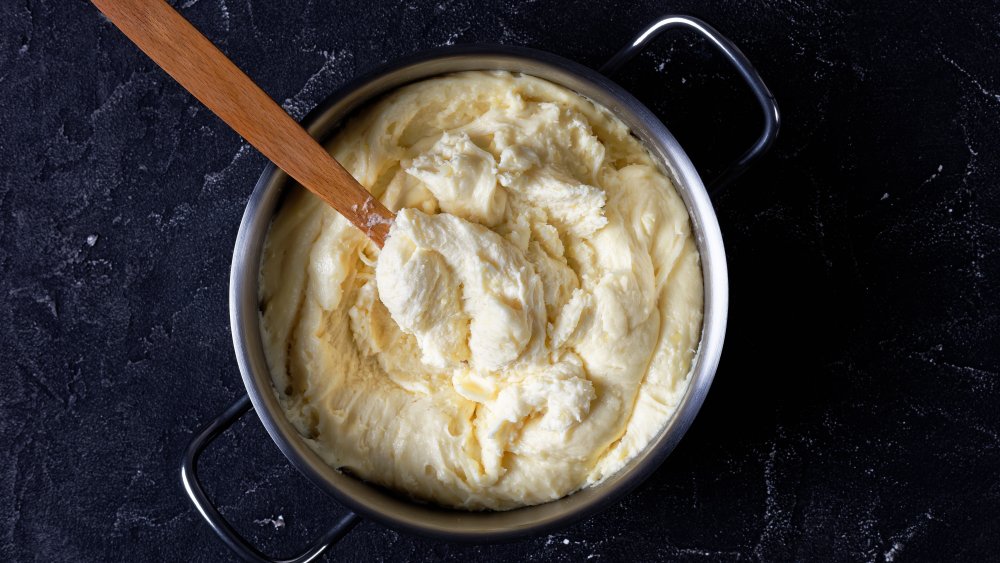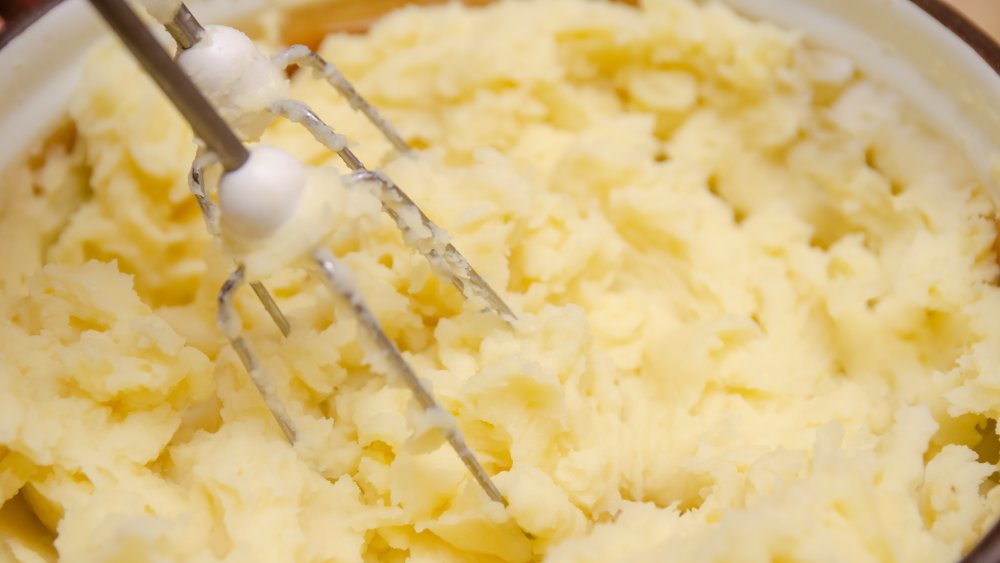The Easiest Way To Mash Potatoes Without A Masher
If there's one classic side dish that's way too easy to mess up, it's mashed potatoes. That's because, not unlike certain batters, overworking your potatoes can result in an unpleasant, gummy texture (via Food52). This comes from damaging the potato cells, which causes them to release more starch. In fact, according to Serious Eats, the amount of starch your potatoes release is what really determines the final texture of your mashed potatoes, and after picking the proper potatoes and rinsing them with cold water before cooking, the best way to control the amount of starch in your dish is by choosing the proper mashing method.
According to Food52, the easiest way to avoid the over-mashing calamity is to stay away from the food processor at all costs. While it might seem like the easiest and most convenient choice to achieve perfectly smooth spuds, it's almost guaranteed to leave you with a sticky, gummy mess that comes from releasing too much starch. Unfortunately, this presents another challenge: getting the potatoes smooth and creamy without making them gooey and gummy. Luckily, there's a tool you might already have in your kitchen that does just that.
The three unlikely tools that make the best mashed potatoes
Don't bother looking through your drawers for that potato masher, you won't need it unless you're looking to make slightly lumpy, more rustic-style mashed potatoes. For a perfectly smooth version, you have two choices: a food mill or ricer. These tools are ideal for light, fluffy mashed potatoes that are perfectly smooth. This strategy is also the gentlest, meaning it never overworks the potatoes and thus releases the least amount of starch.
If, however, you prefer more dense and creamy mashed potatoes, there's a simple solution for that as well — and it still doesn't require a food processor. Instead, try using either a stand mixer or an electric hand mixer to create your creamy mash. This strategy releases more starch than a ricer, but not as much as a food processor would (via Quartz). Just be sure to taste your potatoes frequently to avoid overworking them and unknowingly stepping past creamy and into the realm of gluey.

